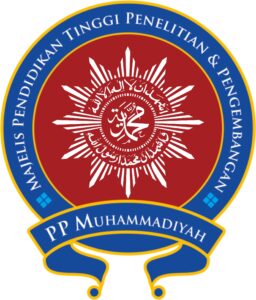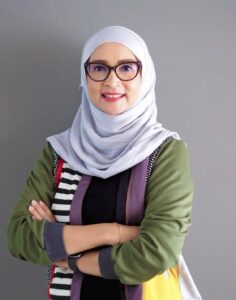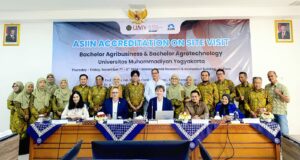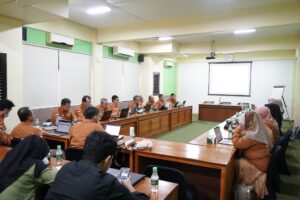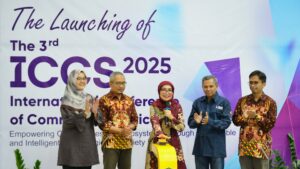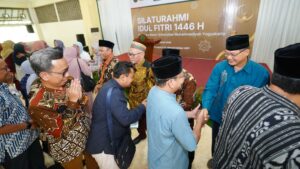The current COVID-19 pandemic has no doubt become a major concern for the world community. In Indonesia, since the detection of two cases of patients infected with COVID-19 on March 2, 2020, that number has now increased to 4,557 positive cases, and 399 patients have died as of April 13, 2020.
This increase in the COVID-19 mortality rate has significantly increased awareness in the community. This increased awareness is a good thing, when compared to the general attitude of the people before March 2, 2020, when what the people heard was that the spread of COVID-19 “only” affected other countries.
Unfortunately, the newfound vigilance has caused excessive anxiety and fear in some communities, something which was not based on proper knowledge. In some communities in Indonesia, there is now a stigma against the death toll of COVID-19. The stigma resulted in a misunderstanding related to the screening of COVID-19 victims’ corpses. There have been too many cases of funerals of COVID-19 victims being rejected in several regions in Indonesia, such as the most recent case in Semarang.
These cases caused a lot of commotion, as well as mental and social health side effects for the bereaved family and people who empathized. This commotion presented itself as an additional threat to efforts to tackle COVID-19 in Indonesia. This phenomenon must be stopped immediately before it becomes a “new disease infection” which is more difficult to eradicate.
dr. Agus Widiyatmoko, Sp.PD., M.Sc, a specialist in internal medicine and a lecturer in the Faculty of Medicine and Health Sciences of UMY said that to respond to the rejection of bodies in various regions in Indonesia, we need to understand in advance that the bodies of ODP, PDP, and COVID-19 positive patients were treated similarly to COVID-19 positive death victims. This is because the test results of ODP and PDP patients who have died may not have come out, so they cannot determine if the bodies have COVID-19 or not. However, PDP patients have a greater risk of positive COVID-19 results. Therefore, to minimize the risk of spreading the virus, the bodies of ODP and PDP patients are treated the same as the bodies of COVID-19 positive patients. “The treatment of the corpse is in accordance with the SOP Protocol that has been established by experts. However, if it turns out that the test results on ODP and PDP patients are negative and the patients die, the corpses are carried out as usual, not in accordance with the protocol for handling COVID-19 bodies,” he explained when contacted on Tuesday (4/14).
dr. Agus also stated that medical workers have a high risk of contracting the COVID-19 virus they had direct contact with the bodies of COVID-19 during the screening of the corpse, and that there is a protocol to govern the way to handle the remains of COVID-19 patients. The virus will remain in the corpse’s body fluids, and special protocols are very important in handling the bodies of COVID-19 patients. First, trained medical personnel uses a complete PPE to handle the corpses to inhibit and prevent the spread of the virus. “This scavenging process uses very strict protocols to minimize the risk of spreading the COVID-19 virus. Starting from the process of a body that is not bathed and wrapped in cloth for bodies that were Muslim, then wrapped in plastic, sprayed with disinfectant, and placed in special crates that are glued together so that they do not need to be dismantled again,” he explained.
dr. Agus added that when the corpse of COVID-19 victims are buried, the virus will die because the body no longer contains much oxygen and does not contain substances that make this virus live longer. For this reason, Dr. Agus told the public not to worry and not reject the bodies that will be buried. The body had been prepared as best as possible to not infect people who come in direct contact and to not infect those around it. “The community must understand that this inhumane protocol makes the victim’s family unable to see the process of collecting corpses directly so that the people who are still alive do not contract COVID-19. That is why the body was treated according to special protocols, and the funeral was carried out in a specific manner. This is in order not to spread the virus to people who are still alive. Therefore, let’s respect the protocol that has been made by experts so that the virus does not spread. In addition, what becomes dangerous is that if there is a large group of people for the rejection of the body, there could be a risk of transmission from COVID-19. Therefore, it is more dangerous if people who are at risk of transmission participate in the gathering of many people,” he added
The same thing was said by Drs. Muhsin Haryanto, M.Ag., Lecturer of the Faculty of Islamic Studies of UMY who said that basically in a normal situation, the body is treated as it is in accordance with the Shari’a in general. But in abnormal or emergency situations, the bodies that are infected with the COVID-19 virus must be treated in accordance with the protocol. So, when a body is infected with the virus and then dies in an infected state, medical personnel will handle the screening of the body until the funeral process. “In this case, the community, especially Muslims, must be proportional. If the bodies affected by the COVID-19 virus have a contagious effect, just focus on addressing how to avoid contracting the virus and don’t worry if the body carries the COVID-19 virus (because it has already according to the standard operating procedure SOP of patient COVID-19). To carry out a proportional attitude, the fatwa also needs to be issued by the ulama. When implementing its ijtihad, the right fatwa can guide the public in responding to the COVID-19 outbreak,” he explained, when contacted separately on Monday (13/4).
Muhsin also added that MUI must speak in one united voice to provide fatwa to the community so that people can properly respond to the COVID-19 outbreak according to Islamic teachings. “Proportional attitudes towards Muslims through fatwa must be integrated between one cleric and another. In addition, we need to know how we can tell the community to come to mourn the bodies of COVID-19, or come together with many people to reject the bodies seen from the benefit and the risks. What are the benefits, should we stay at home or outside the house, these choices must be said by the scholars. When there are two benefits that conflict, the one with the higher value should be chosen. And when there are two risks, the smaller risk must be chosen, “he concluded.
As has been stated by two experts, it is increasingly clear that the phenomenon of stigma against the bodies of COVID-19 patients in several Indonesian communities has very little basis in terms of medical or Islamic views. We should take part in disseminating the right information as an effort to increase understanding in the community. Let’s stop the stigma regarding the body of COVID-19 patients.
(BHP UMY & COVID-19 UMY Mitigation Task Force Team)
